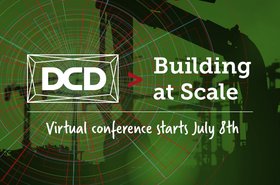Data Centers often generate gargantuan amounts of operational data, which is often underutilized as a way to improve operations and efficiency. Artificial Intelligence offers a unique opportunity to data center operates to extract value from the data. Due to the large amounts of data, and it’s complex nature, it would be impossible for any team of humans to properly interpret, analyze, and utilize the data properly. Siemens is making strides AI-backed software applications that are helping data center operators improve processes, often faster and more accurately.
In Day Two of our Technology Showcase at DCD>APAC Evolution, Giuseppe Leto, Global Portfolio Manager will walk us through the software Siemens has been developing and offering to the industry.
More from DCD>APAC Evolution
-

Episode Tech Showcases Day Two
-

Episode Tech Showcases Day One
-

Forecasting is changing the game
While many data center infrastructure management (DCIM) platforms offer effective real-time tracking of performance and give valuable insights related to current capacity. Despite this, another piece of the puzzle is missing. What many data centers lack is the ability to forecast future requirements, allowing operators to make risk-free decisions as they pertain to data center management practices.
Siemens’ AI technology aims to do three key things: increase business, maximize capacity, and ensure that operators can respond quickly to changes or future forecasts. Siemens has a number of use cases where this AI technology has improved data center efficiency. These use cases were borne out of capacity planning and sales cycle processes that required the ability to accurately predict future needs for data center capacity.
The integration of Siemens AI technology allowed extremely complex infrastructure requirements to be managed easily through valuable insights. Planning in data center environments is extremely vital to the success of operations, and what many operators have lacked in the past is certainty and information needed to make accurate decisions. AI technology is a piece of the puzzle that makes optimizing data center infrastructure possible, even with extremely complex requirements.
Not just scratching the surface
While humans may be good at noting what problems may occur in the future, detecting when and where they happen is a skill we are yet to learn. AI technology can be used to supplement planning and operational efforts in anomaly detection. The ability to ascertain what may impact the performance of valuable assets across data center infrastructure is invaluable. This ensures appropriate planning can take place, and that business continuity is ensured for clients and operators.
By collecting and analyzing data on how different systems and assets within a data center communicate, AI technology can accurately predict anomalous events that have negative impacts on operations. In many cases, these events are not due to a single fault or issue, it is often a flow-on effect of multiple issues that impact overall operations.
Keep it cool
AI-driven cooling optimization can relay deeper insights to operators who can make more sophisticated decisions about cooling assets within data centers. This has the potential to save energy, increase capacity, and reduce hot spots within data centers. In the face of a rapidly changing landscape for energy generation and usage, cooling optimization is a pertinent topic.
The systems developed by Siemens can dynamically match cooling to IT loads. This means that human control over cooling is not needed, and results in an overall improvement in how energy is used to keep the temperature down. This is a sophisticated process of measurement, prediction, control, and learning that the AI system managers, requiring little if any manual input from humans.
Make sure you tune into Technology Showcase Day Two with Giuseppe Leto, Siemens, to hear more about the specific use cases that Siemens’ AI technology can be used for.
Upcoming events:
-

Broadcast DCD>APAC Evolution VIRTUAL
Meet data center & cloud demand, understand market trends and uncover technology innovation -

Broadcast DCD>Building at Scale VIRTUAL
How can you keep up with growing data center capacity demands sustainably and at speed? -

Broadcast DCD>Critical Power VIRTUAL
Building resilient power architectures for data center, edge & cloud infrastructure

